CGCRT/GeoAlliance: Getting Off on The Wrong Foot
Since my last article on the CGCRT project, I’ve been waiting and watching for the CGCRT to address some of the concerns that both I and others in the community raised, particularly about the name “GeoAlliance” and the funding structure. I did not have to wait too long.
If you are still getting emails from the CGCRT (some of us don’t anymore), you might have received news about their April 20th event in Ottawa. In this email, they mention that they have decided to rethink the $1,500 buy-in for members. That’s a positive step and a climb down from the “take it or leave it” approach they offered in the past. But the email explains that they have also decided to double down on the GeoAlliance name and it won’t be up for discussion at the April event. Keep in mind that at the time this article was written, they had not yet distributed an agenda for the event, and so we don’t know for certain if they will change their minds and put it on the agenda. But imagine the temerity to tell a community of leaders that you are inviting them to discuss important matters facing us as a sector, but certain topics are off the table. In fact, that they are forbidden. High-handed indeed.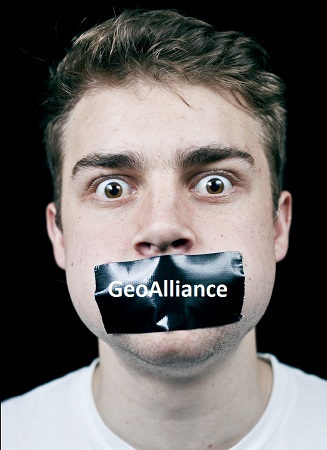
Some in the Canadian geospatial community might think that because I’m the Managing Director of GoGeomatics Canada, I’m biased towards using the word “geomatics” for all things relating to Canada’s geospatial community. I can assure you, that is not the case. I have publicly challenged the word several times. Last year, I created a video for the CGCRT June event where I went out to Parliament Hill and asked people if they knew what geomatics was (spoiler: most of them didn’t). I’ve also written more than one article declaring that the word just plain sucks. So if that’s the case, why am I and others so disappointed with the name GeoAlliance and the subsequent communication spin of “geocommunity” (a term, by the way, that I can’t find in any of the documents or reports created during the course of our work on the project, until now)?
Putting The Cart Before The Horse
In the Strategy that the CGCRT adopted, there is a whole section on identity and its importance. The name of the umbrella group that is tasked with working on that is obviously an important one. Seeing as the creation of an identity and brand was one of the goals to be looked at once the umbrella group was up and running and the community was engaged, it makes it that much more disastrous that the CGCRT starts muddying the waters by using terms like “Geo” and “GeoCommunity.” Terms that the community has not adopted nor discussed. It will be hugely difficult to come up with a coherent brand or identity for us as a sector when the umbrella group has already unilaterally started building one. I would not have minded if they had gone with something more neutral like the Geospatial Alliance of Canada or the Geomatics Alliance of Canada. You can go anywhere from there. In fact, those are the words the community would prefer for us to use. At the June event last year, they insisted upon it.
The CGCRT Ignores The Community It Purports to Lead
Another reason I disagree so strongly with the direction that the CGCRT has taken with the proposed name GeoAlliance is the way in which they did it. I went back to the transcript of the 2014 June event and found the section where we, as a group, called for a vote which was conducted by Ed Kennedy on the use of the terms geomatics and geospatial going forward. A show of hands led to a decision adopted with the approval of the community that we would use geomatics to refer to us as a core group, and geospatial to refer to the community in general. In fact, this is what became the basis for this article by Ed Kennedy and Evert Kenk. Despite this, we somehow still ended up with the nonsense name “GeoAlliance.”
Why did a very small group of people behind closed doors vote to throw out the words we decided upon as a community and choose a word that never once came up in discussion through the history of the project or at the June event? They might try to argue that it was a well-considered decision by consensus. I wish that were so, but it was a done by vote within a very small group within the project, and that vote was not even close to being decisive. I’ve called for the record of this meeting and vote to be made public – after all, it is an open and collaborative project – but that has not yet happened.
How Do You Create A Brand for Canada?
As any marketer worth their salt will tell you, you can’t create a great brand overnight and you can’t beg, borrow, or steal it. The creation of a Canadian brand for our sector will take time. A lot of time. It will take five to ten years of concerted effort on all our parts to do this.
Trying to pick one word out of a series of imperfect words to describe our sector is impossible. Everyone seems to be under the false assumption that the most popular term is the name to go with. They are looking for an identity in a can, ready to go right now. The name GeoAlliance comes from the same fuzzy thinking on communications and marketing. To be sure, a brand is not just a name or a logo. It’s a promise. It’s promise to your clients, staff, volunteers and the world in general about what you will do and how you will do it. Part of creating a brand is differentiating from other brands. Creating a brand for our sector is going to be no different.
The Most Popular Word is Not The Best Choice
I’ll give you an example using search engine optimization (SEO) to illustrate. When you are trying to find terms for a website that will drive people to your site or at least help them to find it, you have to use terms they use, while avoiding terms that everyone else is using. If you don’t, you will get lost in the vast ocean that is the internet. 
“Geomatics” comes up only 900,000 times, while “geospatial”, “mapping”, and “geography” get numbers reaching the 26 million mark. The erroneous assumption is that more is better. Does that mean we should all jump into the already teeming waters of one of those terms and fight for an identity and brand? That’s a bit like seeking out the deepest ocean to drown your brand and your identity in. With “Geo,” the ocean is deepest of all, with over half a billion hits on Google. This is one of the strongest indicators that “GeoAlliance” is an obvious branding and marketing misstep.
The Earth Alliance of Canada
Another reason I have such a problem with the term Geo? From a marketing and communications perspective, it doesn’t actually mean what the people who came up with it want it to mean. That just makes us all look foolish. “Geo” is a Greek prefix that means “Earth.” In that light, the new name that represents the geomatics sector and geospatial community is called the “Earth Alliance of Canada.” To me, that sounds like an environmental group that’s trying to protect the planet. A great goal, but not exactly what our brand and our identity should be. When you start to take it apart and really look at it, it just all seems ridiculous.
Admit The Mistake And Move on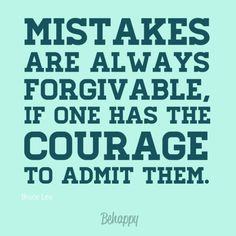
I have the highest respect for people who volunteer to work together on the issues facing our community. However, just because you get a group of volunteers together in a committee doesn’t mean they are infallible. Mistakes are not the end of the world, and can be easily corrected if caught early. Unfortunately, at this point it seems much more about ego and saving face than it does about doing right by the community and the project. We need to be able to admit when we make mistakes and move on to correcting them. As well, we need to be able to discuss it. My hope is that wiser heads will prevail. Personally, I always thought that when things got up and running, the professionals would be called in to help work on the identity and brand of the sector. I hope that still happens. As evidenced by this very public debacle, it is obviously needed.
Can I make a suggestion? Just go with the Geospatial Alliance of Canada and we can move on to create a brand and identity for our sector. I will have time for one more article leading up to the April 20th event.

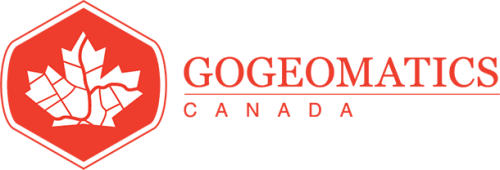

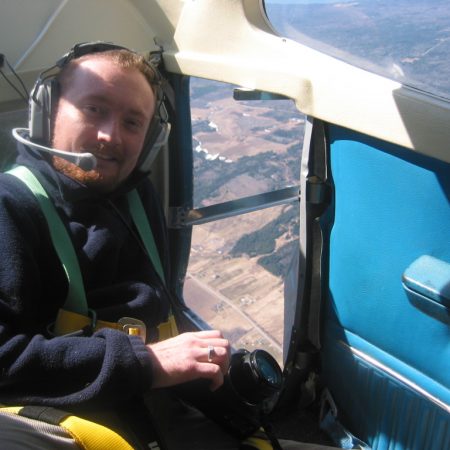
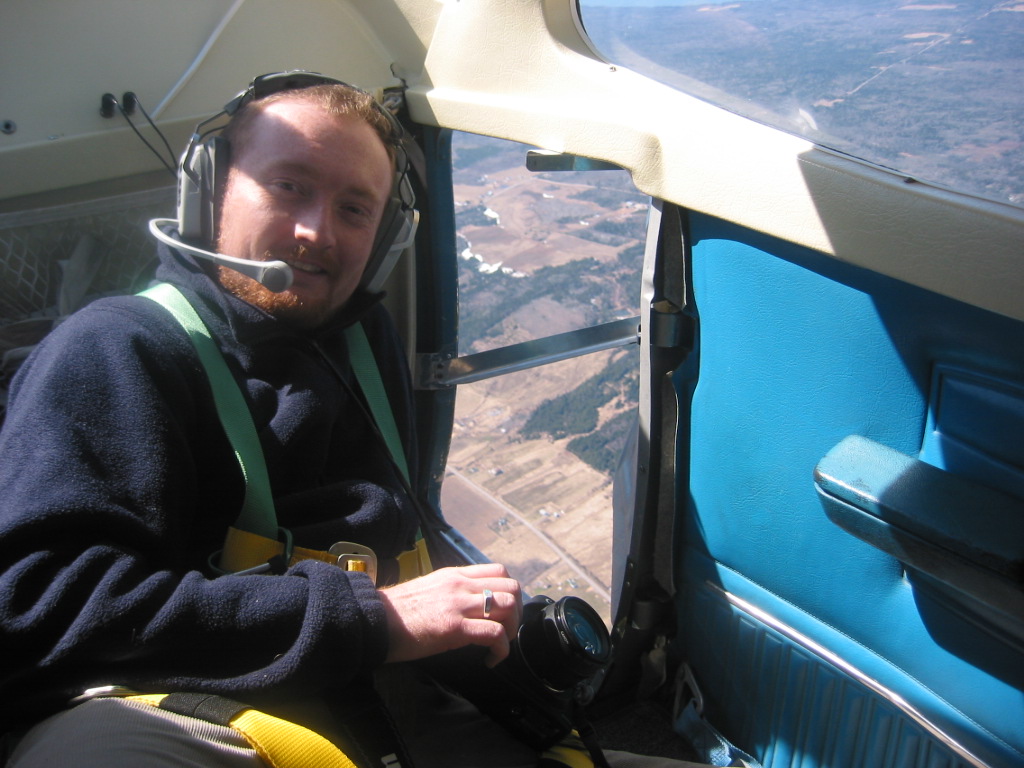




Well said Jon. During the process and how things seemed to be run, I decided to stop participating in the working group that came up with the name – so don’t blame me! It is really too bad, there was such buy-in and wide support last June from the entire community. Many of us who began as naysayers threw our support behind the idea after some wonderful unifying speeches by the likes of Prashant Schukle, Peter Sullivan and other senior members of our community. Where did it go so far off the rails? How has it come to this? One problem I see is that while both Prashant and Peter exhibited leadership in getting us to and past last June, by the nature of their positions and responsibilities in the federal government, they could not get involved in some of these decisions. As a former DG myself, I fully understand the issues that they faced. Without their gentle and common-sense hand on the tiller, it seems that the ship has sailed off in the wrong direction.
Thanks for your take on the issue Bob. Through contacts I have in NRCan, which are all unofficial, the impression I get is that they wish the CGCRT would climb down off the cliff on this issue.
Jon, all this sounds so much like the sometimes furious debates in the mid-1980s when we changed our identity from Surveying & Mapping & Geodetic Sciences & Photogrammetry and Remote Sensing & Cartography & … for “Géomatique” in French and later on for Geomatics in English. The griefs you are making are almost identical 😉 From the point of view of the History of Science, it is very interesting. For a rapidly changing domain, it is necessary to repeat the exercise once in a while. So, your comments are welcome. Personnaly, I appreciated very much the separation between the Geospatial Community and the core geomatics industry made in the canadian strategy report since this represents very well our reality.
BTW, your comments about SEO are exact, idem about branding, and it is why Canada must not abandon Geomatics.
If you go in the street and ask people about “geospatial”, the score will likely be the same as geomatics (and potentially worse if people deduce wrong definitions based on its roots). In fact, in the mid-1980s, using a word that nobody knew was seen as an advantage because people started to ask “what is it?”.
BTW, if we compare with other disciplines (e.g. computer science, geography), they have plenty of specialized associations because their fields are very large. They also complain that the general public doesn’t know what they do.
Finally, I can certainly make a positive recommendation with regards to more representative names: rename “GoGeomatics Canada” or make it bilingual since it doesn’t cover yet one quarter of Canadians’ reality where branding “géomatique” has started and has been more successful. I know it is an easy shot, but this situation frustrates me much more than my geomatics identity 😉
Thanks for your comments Yvan. Much appreciated. I’d love to go fully bilingual on GoGeomatics Canada being a Quebecker myself. But alas I don’t have the deep pockets for it. Maybe in the future!
-Jon
I know Jon since we talked about it last year in Ottawa. In fact, I was writing this comment for the readers of our geomatics/geospatial communities because we see here only one side of the coin. The other side that is missing has been more successful with branding geomatics and has very active organizations, post-secondary recruitment campains, and very low unemployment rate. I really wish you would get the funds to make the website bilingual and consequently more representative of the geomatics reality in Canada.
Seems like a solution looking for a problem. The Geomatics term actually has gained a lot of traction over the years and I don’t see the need for a big rush to toss it aside. Geospatial is also common but less inclusive and requiring as much explanation to those unfortunates outside of our sphere of influence. As for bringing the community together I think we’ve proven that the current models are no longer relevant so we need a federated approach that includes any interest group that has the means to get organized wether it’s real or virtual.
After working with many organizations over the past decade, one thing I have come to realize is that the ability to compromise is one of the most important characteristics that any board member can come to the table with. While it is believed that being a team player, organized and well communicated individual is imperative to be part of a board, the innate ability to compromise and move forward for the greater good of the community should prove a valued asset.
Many of the items in this write-up are not fully mired in the truth, but are based on hearsay. As the co-chair of the Leadership and Governance Committee, who was asked to put forward this proposal to the steering committee and then after several iterations, presented to the community, our committee spent much time working on the name, the purpose and the bylaws that represent the umbrella organization.
While many who have known me over the years would argue I have always supported the word Geomatics and the use of it as the overarching science, these past few months have opened my eyes to the fact that this divisive word is neither worth throwing all my support behind nor worth throwing out. GeoAlliance Canada doesn’t throw anything out. It isn’t a brand. It isn’t a new term; it is a name for an association, a group of common thinkers that intend to work to better the community.
If GeoAlliance seems to be being pushed on you, then maybe you should have taken part in the conversation and not leave because you can’t deal with the direction the MAJORITY of the team has made. So to those worried that this isn’t moving the way they see fit; volunteer for a group who becomes a member of GeoAlliance, stay in the conversation and promote the growth of the geomatics, geospatial, geography brand you stand for.
Don’t think of GeoAlliance as a reason to be divisive, but a reason to promote and grow our community!
Sorry Brad, I have to go with Jon on this one. GeoAlliance means nothing to me as a geomatics professional. And identity is everything.
Jon:
As you know I am currently a temporary resident of Haida Gwaii, not exactly close to the centre of activity in Ottawa. As part of my local research, I came across the transcript of a talk by John Ralston Saul, here in 2002, on ‘Leadership and the Environment'(see spruceroots.org or go to the Gowgaia Institute web site). Besides many other topics Saul talks about the difference between leaders and managers.
My sense is that the CGCRT naming issue is tied directly to the distinction between leaders and managers. Not everyone can be expected to be a great leader, even though they may be excellent managers. Or in the words of Ralston Saul, “Leadership is an integrated view of society, culture and economics.” And “the key to the idea of leadership in the environment area and in society is that you must find ways to integrate people and place”.
I thought that it was worthwhile to bring the reference to the attention of your readers, because I believe there is a deeper issue.
Keep up the good work at GoGeomatics.
Cheers,
Bob
BTW the Gowgaia Institute has been responsible for some excellent mapping on the island.
Actually I think that the name “GeoAlliance” is very couraGEOus and allows the new organization to include all Canadian GEO related disciplines; GEOmatics, GEOgraphy, GEOspatial, GEOlogy, GEOphysicists, GEOchemistry, GEOmorphology, GEOtechnicians, bioGEOgraphers, bourGEOises, GEOdesists, zooGEOgraphers, GEOhydrologists, GEOids, GEOmancers, GEOscientists, bi-GEOgraphers, GEOstrategists, neurosurGEOns, goGEOmatics, photoGEOlogists, and even GEOgraphy teachers!
This way the organization can be able to keep the fees low due to so many members! If your gonna play in the big leagues you may as well Go All In! – GEO all the way!
I think the question is to what purpose any group exists. The old gamer geek in me assumes an alliance has a military bent to it: For example. the game Axis & Allies. I think the point is this: an alliance is usually a for- or against sort of thing. Being relatively new to the nation, I am attempting to be careful in my criticism here. I am not disrespecting the group’s work, nor its purpose. It is of great importance, and I will support the growth of the community as best I can. However, marketing and brand are important, so is understanding. Obviously, the variety of comments above show a good, healthy debate. So it gets back to purpose: does the name reflect the purpose? And what might that mean to someone outside the organization? There’s good work being done here, and it can be helped by how that work and the people doing it are perceived. I would only wish that that good work continue being positively viewed and marketed accordingly. We live in a world where perception and marketing matte, however we might grumble about it, so I think Jon’s questions are fair, with all due respect to Brad above. Best Wishes to All!